In the quiet expanse of Chuhuiv's farmlands, Natalia and Vyacheslav, both in their mid-fifties, stand amidst the remnants of a life once filled with the lush green of cultivated fields. These fields, now silent and dangerous, are sown not with crops but with the deadly seeds of war—landmines.
"Our fields are contaminated with landmines," Natalia says with a weary yet determined voice. "All our fields. There's nowhere to plant." Farming, more than a livelihood, was their connection to the land and to each other. Now, it's a perilous endeavor.
February 24th marked a turning point in their lives. They woke up to the nearby Chuhuiv airport bombing, an ominous herald of the horrors to come. For a month, they lived under occupation, their home a prison, while Russian soldiers patrolled their village. "Everything was trembling from the explosions," recalls Vyacheslav, the strain evident in his voice. They remember this time as hostages in their own home.
In a desperate escape, they fled through minefields, leaving behind their farming equipment, the tools of their trade, and a piece of their hearts. They took only their pets, symbols of the life and warmth that once filled their home. Their departure was timely; the invaders looted their house the very next day, pillaging everything, including their carefully saved reserve of seeds, even storing ammunition in their garage which later detonated, leaving their home in ruins.
JJ Chalmers and Vyacheslav in the remnants of his home
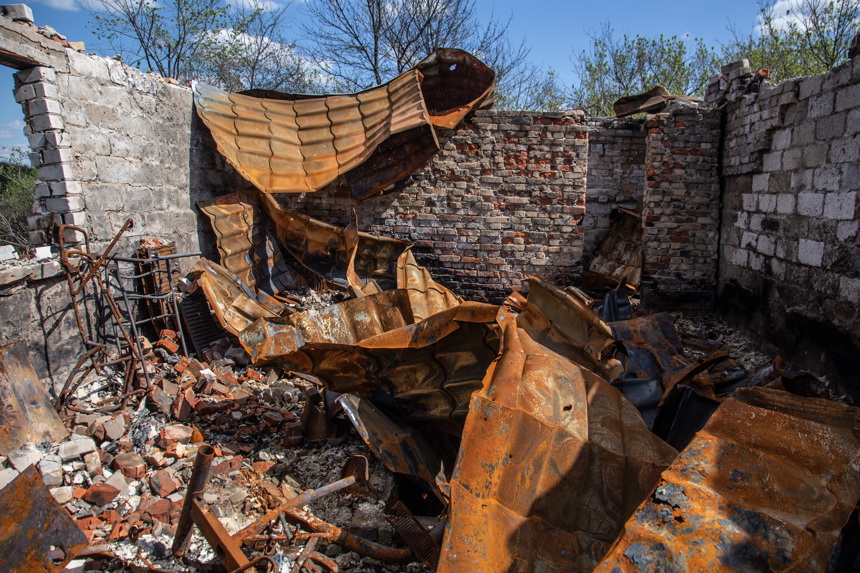
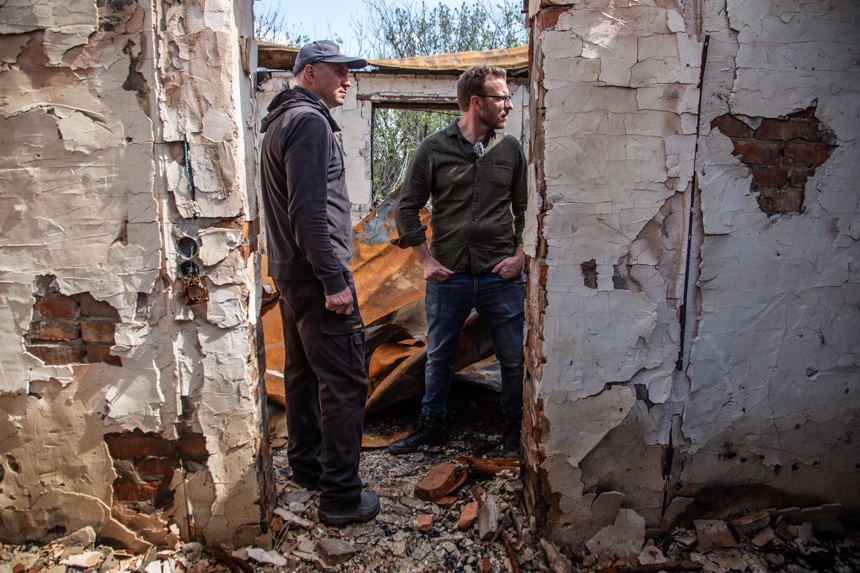
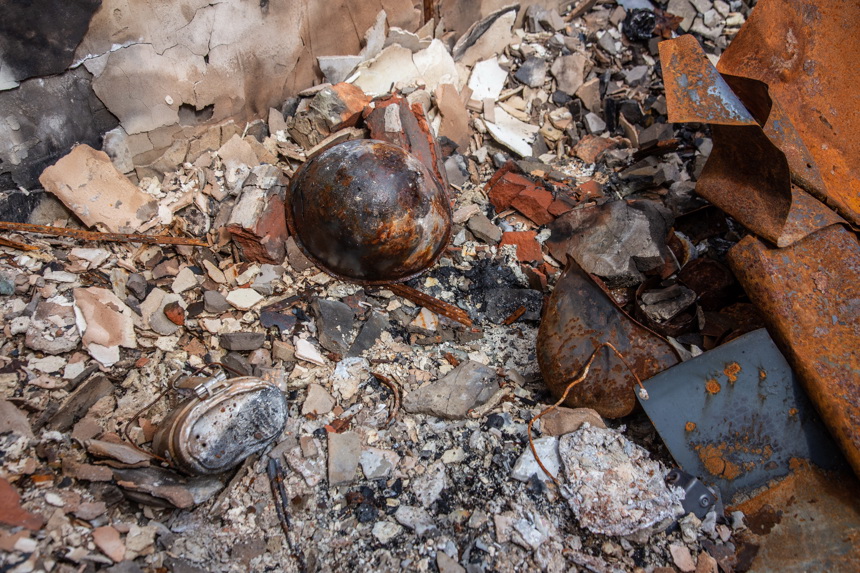
Their village was liberated on September 7, but the liberation brought little respite. The land was still infested with remnants of war. Vyacheslav, in a bold yet risky attempt, decided to clear their land himself using a makeshift hook. It was a decision born of desperation and a deep connection to their land.
Now, they live a nomadic life, their home destroyed, their future uncertain. "We don't know where to go. We need to find something," Natalia shares, her voice a mix of despair and hope. Though danger looms, they continue returning to this land and hope to move back one day. "We've put a lot of soul into this place, we enjoyed doing it... you forget there's a war going on when you're here... This place is peaceful. Look at how beautiful this place is, the lake, the blooming cherry trees."
Yet, amidst this bleak landscape, Natalia and Vyacheslav's spirit remains unbroken. "We don’t have a choice. We just keep going. We have to plant. We have to earn money," Natalia states firmly. Their resilience is a testament to the human spirit's indomitable will to survive and rebuild.
Remnants of war still litter Natalia and Vyachelav's land. The Ukrainian military discovered tripwires in these orchards.
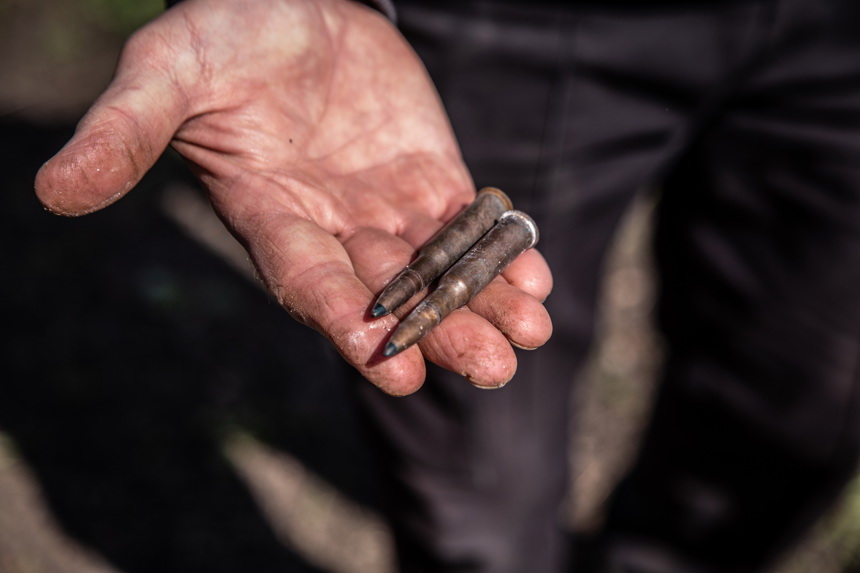
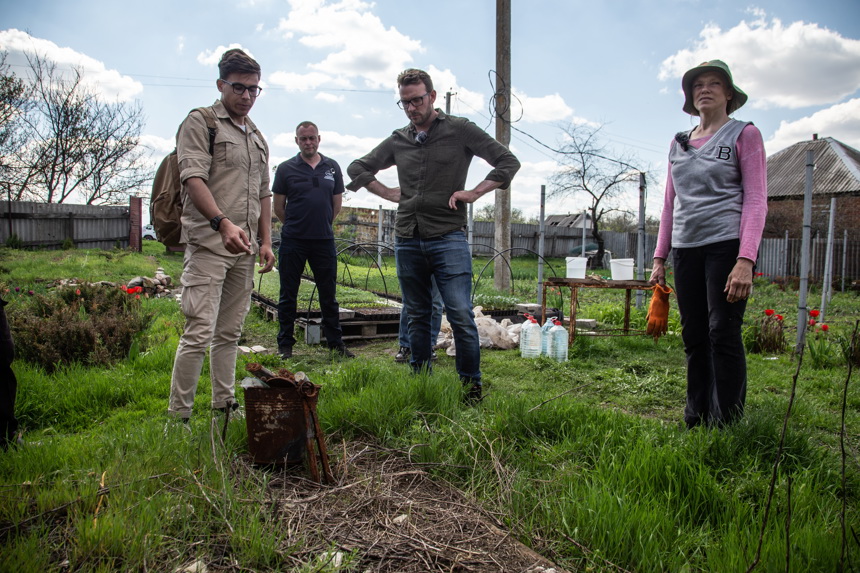
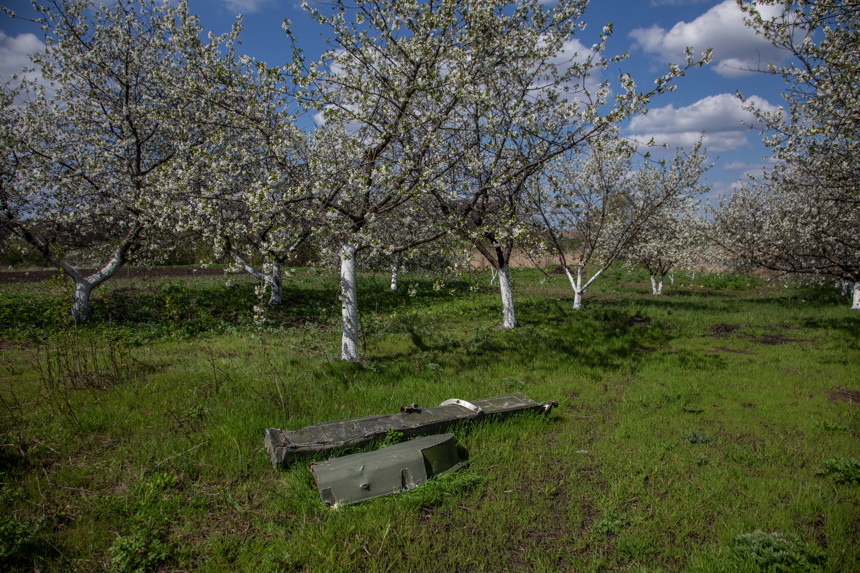
As part of our mission, HALO is working tirelessly in Ukraine, clearing landmines and unexploded ordnances, making it safe for families like Natalia and Vyacheslav to return to their land, homes, and livelihoods. It's stories like Natalia and Vyacheslav's that fuel our commitment to making lands safe and restoring hope to those whose lives have been torn apart by conflict. As they look towards a future of rebuilding and recovery, HALO stands with them, committed to clearing the path to a safer, more hopeful tomorrow.
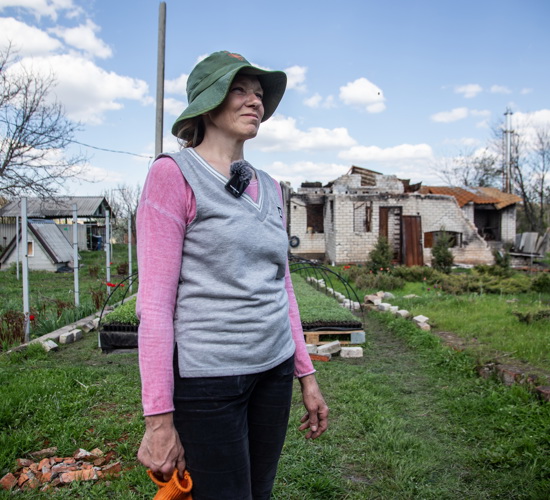
BEYOND BOMBS pODCAST
Hear Natalia and Vyacheslav's Story
Listen in to JJ Chalmers in a special two-part series as he joins HALO on the ground in Ukraine. In this episode, Senior Supervisor Bohdan Hreshko leads the team to the town of Chkalovkse in the Kharkiv region, where a football pitch has become a minefield, and an agricultural field in Mykolaivka that is sown with anti-tank mines instead of crops. JJ speaks to farmers Natalia and Vyacheslav, whose fields are contaminated with mines and tripwires, and whose home was destroyed by an ammunition explosion.
Listen on your favorite podcast app here.


